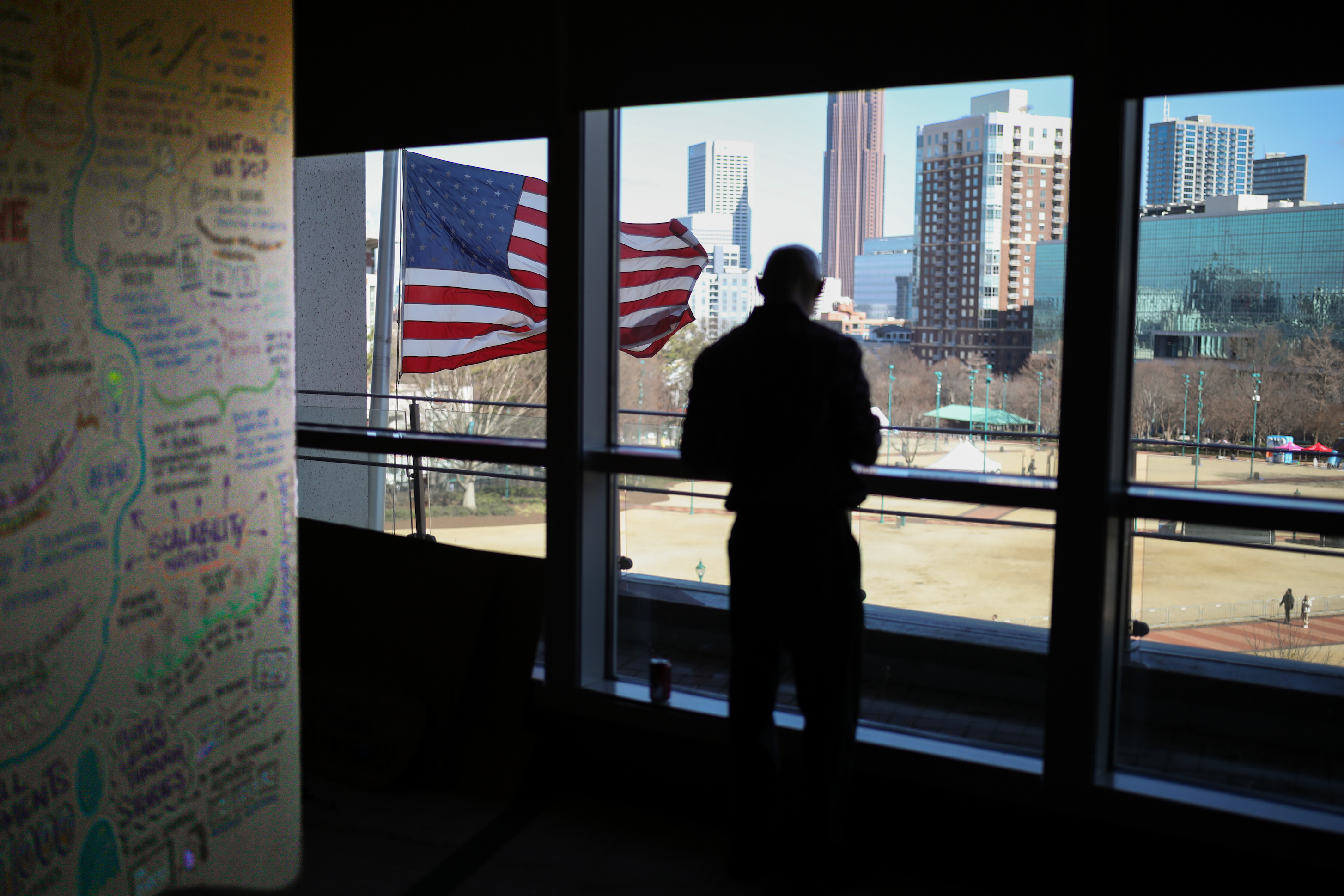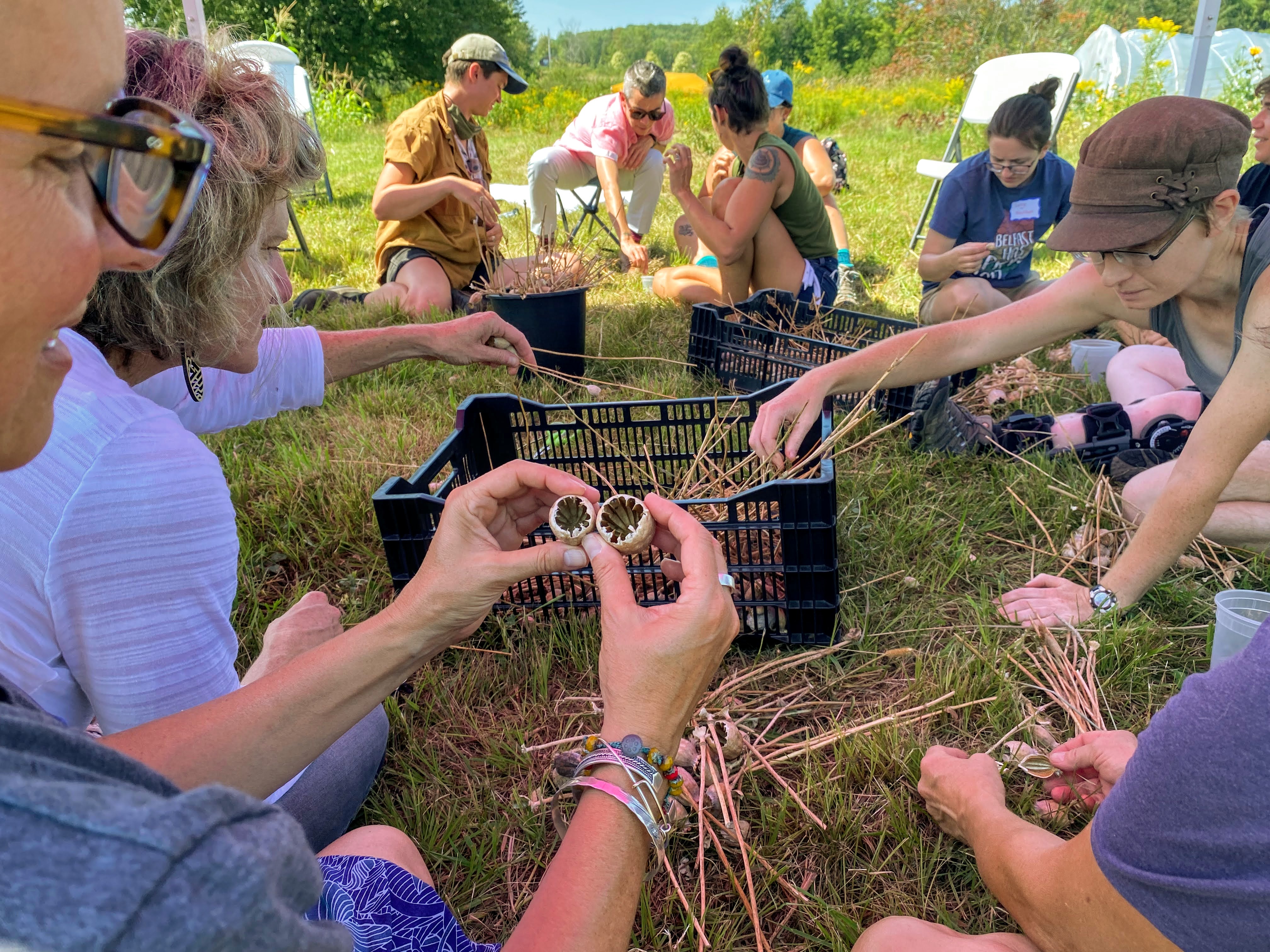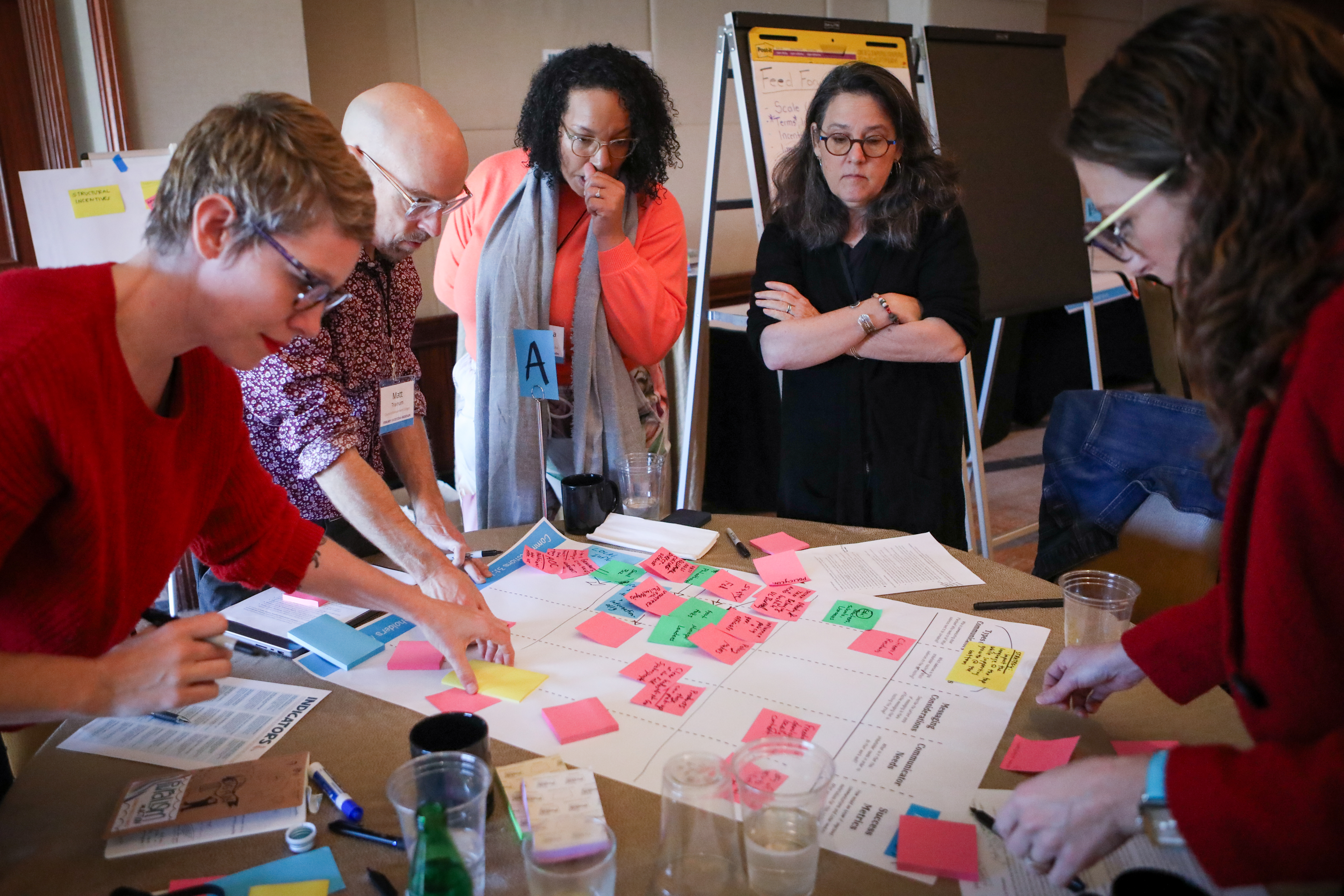Pluralism and the Work of Democracy
October 16, 2025

Our society is caught in a destructive conflict cycle, one that began years ago. Escalating distrust, fear, and defensiveness are eroding the norms and relationships our democracy depends on. Many of us are wondering: What do I do when it feels like the world is on fire?
It can be hard to avoid being swept up by the anxiety all around us or doubling down on outrage. But moving forward requires something different: rather than fighting fire with fire, we must build the broadest possible coalitions to fight for our democracy and the common good. It requires honoring one another’s dignity, even when we’re angriest, and finding a way to live and work together, because we need each other if we hope to build a brighter future. This is the work of pluralism.
Political scientist Daniel Stid puts it clearly: “If you believe in liberal democracy, especially in its multi-racial or multi-creedal permutations, pluralism is not optional. You either have it, and cultivate the civic culture needed to sustain it, or sooner or later you end up in depths marked by political violence or civil war.”
There's not just one “right” strategy for building and upholding democracy. We need multiple, interdependent approaches, as captured in Horizon Project’s Block, Build, Bridge framework and demonstrated by the many leaders and organizations New Pluralists has supported over the years.
Pluralism is the backbone of a healthy democracy. It’s part of our tradition of self-governance, the idea that every person has an equal say in public decisions. And it creates the foundation for a healthy, peaceful civic culture; pluralism asks us to respect each other’s inherent worth, disagree and persuade each other without resorting to violence, and work together to address the hardest problems we face. This takes courage and hard work. It requires a leap of faith. It asks us to believe that there's another way we can be with one another and that a better future for everyone is only possible when we build it together.
We see people taking this leap of faith in Buffalo, New York, where Resetting the Table helped community and faith leaders navigate the aftermath of two acts of political violence: a racially-motivated mass shooting at a grocery store and a firebombing of a pro-life pregnancy clinic. By engaging in difficult and honest conversations across ideological, religious, and racial divides, residents found healing and common ground, and groups who were once bitterly divided came together to oppose political violence in all its forms.
And we see how pluralism can also get better results for communities. In Connecticut’s Naugatuck Valley, All In brought together unlikely allies to help their towns thrive, including residents, organizations, and public officials with profoundly different political beliefs and cultural backgrounds. They built trust, and in turn built trans-partisan support for policies that expand affordable housing options across the region.
Examples like these prove that pluralism isn’t just a lofty ideal. Nor is it a retreat from the fight against anti-democratic forces. Pluralism is a crucial, proactive strategy for long-term resilience. It insists that sustainable solutions emerge from processes where people honor each other's fundamental humanity while working through their differences, as All In has shown by turning kitchen-table conversations into policy wins that continue to shape the region’s future.
Philanthropy plays a unique role in making sustained collaboration across difference possible. New Pluralists, a collaborative of ideologically diverse funders, does this by investing together in the work while also building trust with one another. Whereas political actors often operate on short-term cycles, funders can take the long view.
Funders can invest in the habits and relationships that build durable community bonds, strong enough to withstand divisive appeals that would turn us against one another. Research shows that most people want to build relationships across lines of difference, but many lack the opportunity or incentive to do so. Philanthropy can create meaningful opportunities for people to connect across differences—especially by investing in work that brings people together, across different backgrounds and beliefs, to build meaningful relationships and address shared goals. Funders can also invest in strengthening the norms that help us navigate our disagreements without violence and live up to the American ideals we share.
The current moment requires that we figure out how to prioritize this work along with other democratic protection efforts. A both/and approach is vital; the familiar playbook of opposition is insufficient alone. We must counter threats that undermine democratic laws and norms while simultaneously investing in the cultural foundations of democracy itself. The path forward requires something courageous and demanding: the daily choice to build when we’re incentivized to tear down, to stay curious about divergent viewpoints rather than dismissing them, to design processes that bring diverse stakeholders together, and to resist the false binary about what kind of work must be funded now.
Democracy will not be preserved by winning arguments or elections alone. It will be renewed when we rebuild our capacity to see each other as neighbors worth standing up for, and when we commit to the steady, hopeful work of creating a future together.


